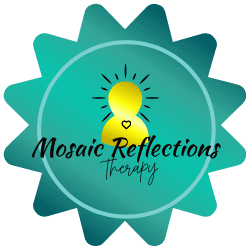Brainspotting
An Extraordinary Way To Heal Your Brain
Brainspotting For Healing
Where you look affects how you feel. Developed in 2003 by David Grand, brainspotting is a newer therapeutic technique that focuses on the mind-body connection. It is a unique and powerful method that addresses stress, trauma, and promotes emotional well-being. A brainspotting session is a highly personalized and collaborative therapy process that makes it a promising option for those seeking profound healing and personal transformation.
If you’re considering therapy or exploring alternative approaches to improving emotional well-being, brainspotting may be a valuable tool on your journey of healing. Brainspotting is a “bottom-up” therapeutic approach, meaning that it bypasses the frontal lobe or cognitive part of your brain and targets the nervous system and midbrain where memories, emotions, and traumatic events are stored. What may take months to years to target in traditional talk therapy, you may achieve results in just a few sessions of brainspotting.

What is a Brainspotting Session Like?
During the initial intake, you and your therapist will discuss any relevant personal history, current concerns, and goals. During a brainspotting session, your therapist will walk you through the steps to prepare. Ideally during a Telehealth session, prepare to meet on a computer (or a larger screen), have with you your headphones/earbuds, a phone (or device to play music), and a scarf/bandana (something to cover one eye).
The session will start with your therapist asking what you would like to focus on for the session. You may be instructed to turn on the bio-lateral music and listen at a soft volume through your headphones/earbuds. From there, your therapist will help guide you into finding your brainspot. You may be looking at the tip of a pointer and asked to notice any differences in your body. The experience is highly individualized and unique. You may notice a dream like sequence playing out in your mind, various sensation in your body, or thoughts that could be connected or completely unrelated to your initial area of focus. Your therapist will be right there with you to guide you through every moment of the process.
Benefits of Brainspotting
- Shorten your stay in therapy.
- Tackle the “big thing” that is hard to talk about or get to in 1 hour of therapy.
- You’ll notice immediate changes in your day to day– for the better!
- You can quickly get to the root cause of your struggle.
- You don’t have to talk about “it” if you don’t want to. Brainspotting will be just as effective!

Brainspotting Can Help With
- Anxiety
- Trauma
- Early Childhood Trauma
- Chronic Fatigue
- Stress
- Negative Self-Esteem
- Depression
- PTSD
- Developmental Trauma
- Impulse Control
- Grief
- Chronic Pain
- Phobias
- Anger
- Attachment Issues
- Feeling Emotional
- Distressing Memories
- Attention Struggles
Brainspotting Intensives
Some people are looking for a deep and rapid approach to healing. Brainspotting intensives offer a short-term option for those looking for rapid and lasting relief. Brainspotting can be used during a traditional 50-minute session and may be incorporated into general therapy sessions. For those looking specifically for an intense experience or would like to include brainspotting in conjunction with your primary therapist, brainspotting intensives can be an option.
